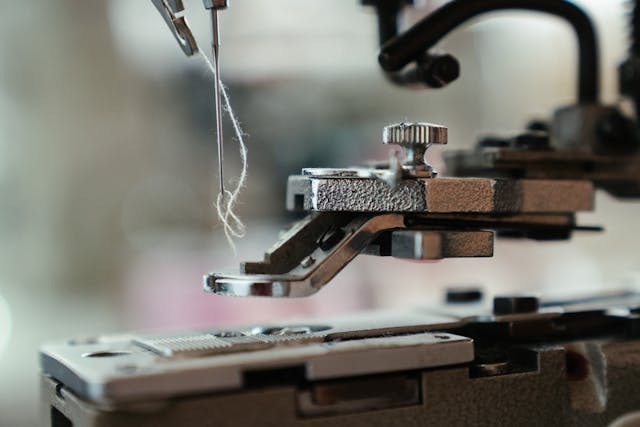In today’s competitive market, businesses are continually seeking innovative ways to stand out. Custom patches have emerged as a powerful branding tool, allowing companies to creatively express their identity and values. These small but impactful accessories can be attached to uniforms, promotional gear, and more, offering a unique way to enhance brand visibility and cohesion. This article explores how businesses across various industries leverage custom patches to strengthen their brand identity and connect with their audience.
The Power of Custom Patches in Branding
Custom patches offer a distinctive aesthetic appeal that can significantly enhance a company's brand recognition. They are not just decorative; they serve as a symbol of affiliation and pride for the employees and patrons alike. The tactile and visual elements of embroidered or woven patches add a level of depth to branding that is not achievable through traditional print media.
Versatility in Application
One of the key advantages of custom patches is their versatility. They can be designed in endless shapes, sizes, and colors to perfectly embody a brand’s logo or slogan. This adaptability makes them ideal for a variety of applications, enhancing their appeal across different sectors and demographics.
Cost-Effective Marketing
Despite their high-impact visual appeal, custom patches are a cost-effective marketing tool. Once designed and produced, they can be manufactured in large quantities at a relatively low cost, providing a substantial return on investment through increased brand exposure.
How Different Industries Utilize Custom Patches
Custom patches find their place in numerous industries, each using them in unique ways to boost brand identity and foster team spirit. Here’s how various sectors incorporate custom patches into their branding strategy:
Corporate Sector
Companies use custom patches for employee uniforms to create a professional and unified look. These patches often feature the company logo and are used during corporate events, trade shows, and daily operations to reinforce brand identity.
Retail and Hospitality
In retail and hospitality, custom patches are used on staff uniforms not only for identification but also to enhance the aesthetic appeal of the service experience. They add a touch of personality to the customer service interaction, making the brand more relatable and accessible.
Sports Teams and Clubs
Custom patches are integral to sports teams and clubs where they symbolize team membership and achievements. These patches are often customized with team logos, mascots, or special achievements and are worn with pride by team members.
Non-Profit Organizations
For non-profits, custom patches can signify membership, support for a cause, or participation in specific events. They are an excellent tool for raising awareness and fostering a sense of community among supporters and volunteers.
Educational Institutions
Schools and universities use custom patches for uniforms, club activities, and special events. These patches can denote academic achievements, club memberships, or school spirit.
Designing Effective Custom Patches
Creating an effective custom patch involves more than just translating a logo into a stitched design. It requires a strategic approach to ensure that the patch not only looks appealing but also conveys the brand’s message effectively.
Key Elements of Design
Logo Clarity: The logo or symbol should be clearly recognizable, with no small details that can get lost in the stitching process.
Color Scheme: Colors should be chosen not only to stand out but also to remain consistent with the brand’s existing color palette.
Material Quality: The materials used for the patches should be durable and capable of withstanding wear and tear, especially if they are to be used on frequently worn items like uniforms.
Incorporating Brand Values
The design of the patch should reflect the brand’s core values. Whether it’s through the imagery used, the quality of the materials, or the colors, every aspect of the patch should align with what the brand stands for.
Conclusion
Custom patches are a dynamic and versatile tool for business branding, capable of leaving a lasting impression. Whether it’s a corporate setting, a retail store, a sports team, or a non-profit organization, these small pieces of fabric carry a significant weight in branding. By carefully designing and strategically implementing custom patches, businesses can enhance their visibility, reinforce their brand identity, and foster a deeper connection with their audience. In the vast landscape of marketing strategies, custom patches offer a creative, cost-effective, and memorable way to showcase a brand’s unique personality and values.




















